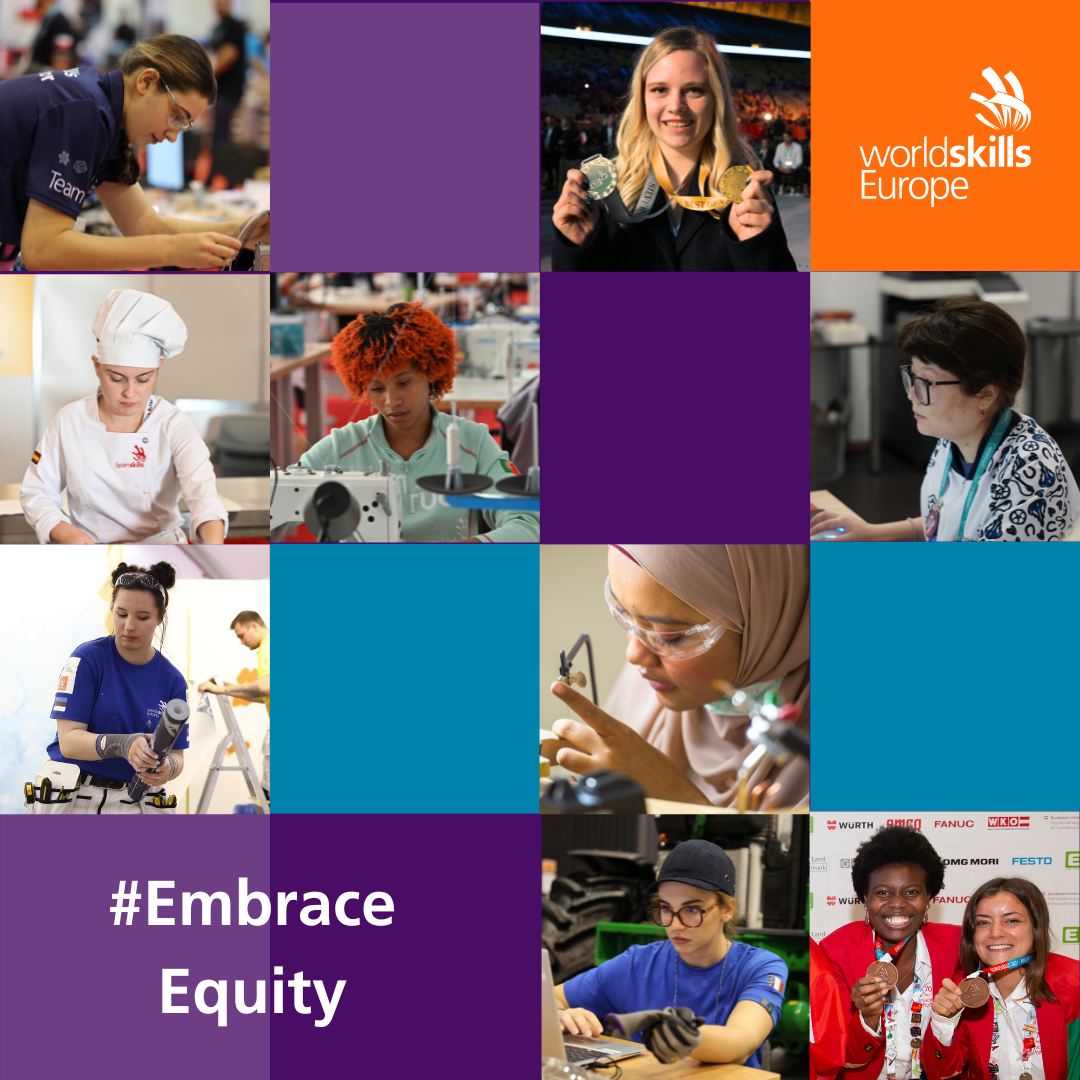International Women’s Day: Champions discuss gender barriers for women in skills

To celebrate International Women’s Day, WorldSkills Champions Trust representatives participated in an Instagram Live discussion. Watch the recording to hear their views on what inclusion means to them.
Having to work harder to prove yourself as a woman in a male-dominated skill, concerns about security, and the importance of role models were some of the issues discussed by WorldSkills Champions Trust representatives Shweta Ratanpura, Justina Ashiyana, and Yousra Assali during the International Women’s Day special Instagram Live on WorldSkills' official account.
In recognition of International Women’s Day 2024, WorldSkills joined this year’s theme #InspireInclusion celebrating #WomenInSkills and engaging communities to collectively challenge gender stereotypes, call out discrimination, draw attention to bias, build equitable spaces, and seek out inclusion.
Drawing upon their personal stories, the three Champions looked at some of the reasons why women choose certain skills over others, and why they often feel discouraged to follow their passions when they do not fit into what is expected from a woman.
According to the World Bank, there is clear evidence that removing gender barriers unlocks economic productivity, reduces poverty, and deepens social cohesion. Closing the gender gap in employment could raise long-term GDP per capita by nearly 20 percent on average across countries.
Women are, for instance, underrepresented in STEM skills, leaving many young girls with little evidence to disprove the notion that mathematics and science are somehow more “masculine” disciplines.
Yousra, who competed for Morocco in the skill of Electronics at WorldSkills Kazan 2019, said that it was hard to convince her family to support her to study this field. They told her to wait for things to change, and for these spaces to become more welcoming to women. Her instructor also discouraged her to pursue Electronics, recommending skills according to her gender and not her passion. And her classmates thought she was unfit to compete in Electronics at WorldSkills.
“During the training I saw my mates looking stressed to prove themselves. I felt even more pressure because I had to prove myself as a woman, and then in my skill. Now, I am proud to have been the first woman to win a national title, and to have competed in Kazan,” she said. “Looking back, it would have been great to have a role model. Unconsciously, it would have challenged the disapproval of others.”
Prompted by a question from the followers, Shweta recalled how security in the workplace or during commutes was a big issue for her.
“Even my parents, who were very supportive and defended my choice to pursue graphic design in front of relatives and neighbours, had concerns about my security. Security to travel to work or at work restricts women and is one of the biggest barriers that we face,” she said, while highlighting that it was the job of governments and companies to create safer spaces for women.
Justina recognised her privilege in having had her father – a tradesperson in construction – as an inspiration that gave her the confidence and support to become a joiner. Being at the WorldSkills Competition facing only men made her doubt of her capabilities, but she chose to trust in herself and finish what she had started.
“I doubt that other women in the same shoes, but without my confidence or support, would be able to achieve their best,” she said, “I wish all spaces were equally inclusive for all. Support is very important.”
At the end of the session, the three young women expressed some of their frustrations.
“Why are we the first ones to be doing this?! It should have been solved a long time ago!” said Shweta, while reminding the audience that “inclusion, in its true sense, is letting women be.”
Watch the full IG Live session for #IWD2024 on the WorldSkills Instagram account.